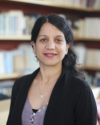- Autumn 2023
Syllabus Description:
Pol S 514: The Political Theory of Hannah Arendt
Autumn 2023
Tue 1:30-4:20
Instructor: Noga Rotem (nrotem@uw.edu)
Office hours: by appointment
In this seminar we will read closely major works by political thinker Hannah Arendt, focusing on one of her most important and suggestive concepts: world/worldliness. World refers to the human-made spaces and things that are commonly shared in democracies; things we fight over and about, and around which we gather. The world of things around and between us serves, according to Arendt, as a stabilizing anchor for our political activities, as an object for our healthy attachment and collective extension of care, and as a means by which we establish an adequate sense of reality.
In Origins of Totalitarianism, Arendt analyzed in detail the historical conditions and processes that led up to the destruction of a common world in 20th century European nations. A Jewish refugee from Hitler’s Germany, she also documented the catastrophic effects that losing one’s place in the human-made world had on victims and perpetrators.
In many of her works, Arendt traces the false objects and rituals that people mistake for a common world or use as placeholders for world (things like “the social,” inner-life, the nation-state, and small, fancy little things they own).
But Arendt’s work is also infused with a persistent wonder at people’s ability to emerge from the ruins, and build, repair, or imagine a common world out of no-world, even in “dark times.”
What is the relevance of Arendt’s world and worldliness for us today, in face or in the wake of white supremacy, neo-liberalization, Trumpism and the loss of a sense of shared reality, and climate catastrophe? Is world-repair possible? What might it look like? What would it take? What is the role of fantasy and collective dreaming in building a common world? How does Arendt’s commitment to world affect her literary style? What is the role of political theory in enabling and protecting worldliness?
In this seminar we will ask these questions and others, focusing most centrally on Arendt’s major works: The Origins of Totalitarianism, The Human Condition, and Eichmann in Jerusalem, and her exchanges with Frantz Fanon, Ralph Ellison, and Gershom Scholem. We will also read a 2017 novel by Mohsin Hamid, and will be using supporting texts from Judith Butler, Bonnie Honig, Juliet Hooker, Ainsley LeSure, Lida Maxwell, and others.
Texts
Hannah Arendt, The Origins of Totalitarianism, Harcourt 1973
Hannah Arendt, The Human Condition, University of Chicago Press 2018
Hannah Arendt, Eichmann in Jerusalem, Penguin Classics 2006
Mohsin Hamid, Exit West, Riverhead Books 2017
Requirements and evaluation:
- Quality of participation + a weekly post about the readings (due 10 am the day of the seminar, 1-2 paragraphs): 20%
- One oral presentation about the week’s reading: 20%
- 1-page research paper prospectus (due on week 5): 10%
- Final paper: 50%. Paper drafts (10-12 pp) are due on week 9 and should be circulated to all seminar participants. On week 10 we will have a mini-conference where each paper will be assigned a discussant and we will all read and discuss each other’s work. The final draft of the paper will ideally incorporate some of the feedback offered in class, and is due at the end of the quarter.
